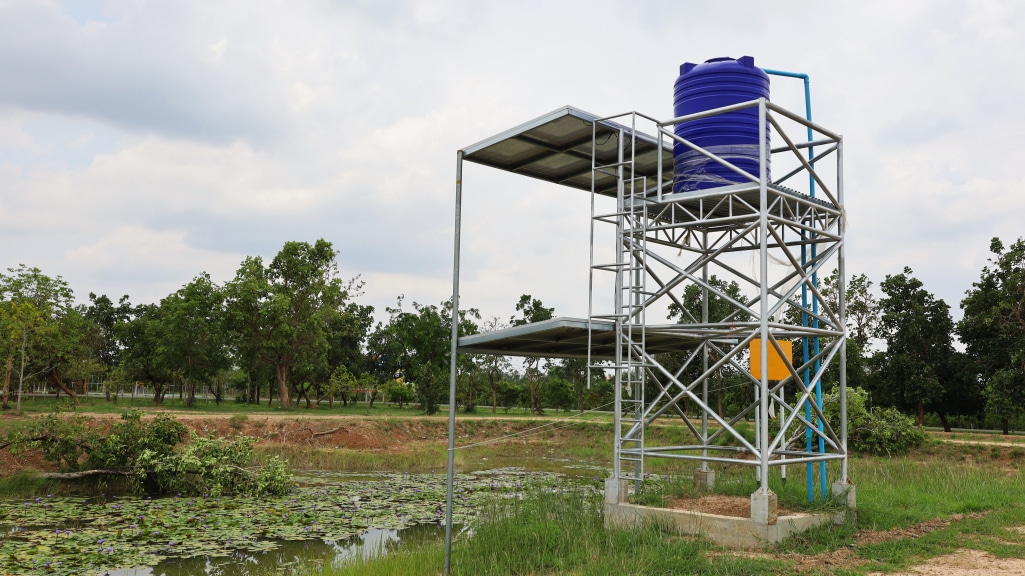In the Democratic Republic of Congo (DRC), the localities of Mutaka, Mapendo, Yenge and Biwaya in the province of Luluaba, located 1,324 km from the capital Kinshasa, will benefit from 18 boreholes to improve the supply of drinking water to 8,000 inhabitants. The new installations, supplied by the Société sino-congolaise des mines (SICOMINES), will each be equipped with a solar pump, two 5m3 capacity tanks, a standpipe and solar panels to power the whole.
“This project will improve the living conditions and health of the province’s inhabitants, through the fight against water-borne diseases, but also agricultural yields,” says Ntambwe Kashona, the technical director of SICOMINES.
Based in Lubumbashi in Haut-Katanga province, SICOMINES is 32% owned by the DRC state and a consortium of Chinese companies made up of China Railway Engineering Corporation (CREC) and Sinohydro. With a capital of USD 100 million, the company employs 382 people, 156 of whom are Chinese and 226 Congolese. Although the mining company has taken environmentally responsible steps in recent years, its environmental impact is nevertheless being questioned.
Read also-AFRICA: $20bn needed to address water shortages by 2030
According to the African Natural Resources Watch (AFREWATCH), cobalt mining at SICOMINES’ facilities in Lualaba province is the cause of water, soil and air pollution, as well as health problems caused by the dumping of acids into the Kalemba River in the village of Yenge. Since 2021, the company has been suspected of “wrongdoing” by the Extractive Industries Transparency Initiative (EITI), an international organisation based in Oslo, Norway.
Benoit-Ivan Wansi
